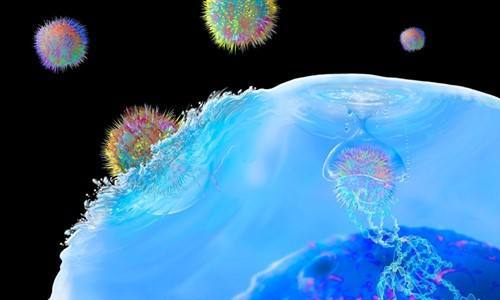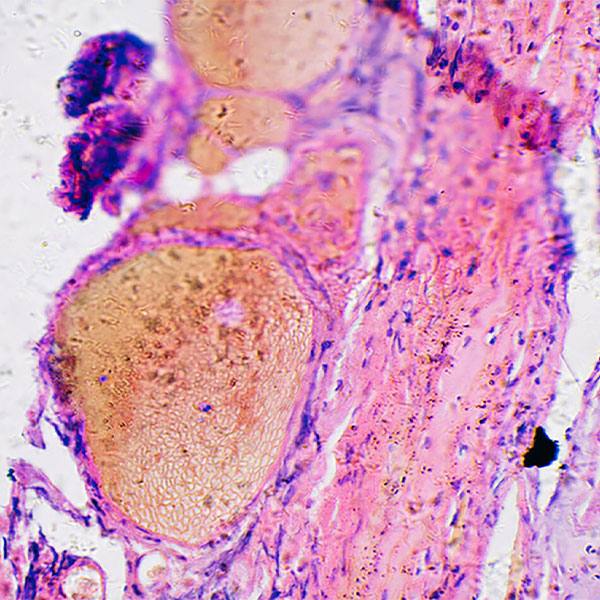-
Cancer
Fighting lymphoma: Treatment options include alternatives to chemotherapy, expert explains

Editor's Note: May 28 is World Blood Cancer Day
ROCHESTER, Minn. — Chemotherapy is usually the first treatment doctors try to treat lymphoma, including the two most common forms: non-Hodgkin and Hodgkin. But alternatives to chemotherapy are developing, as first-line treatments and as backup options, explains Stephen Ansell, M.D., Ph.D., hematology chair and hematologic oncologist at the Mayo Clinic Comprehensive Cancer Center.
Lymphoma is a blood cancer that begins when a germ-fighting white blood cell, called a lymphocyte, mutates and rapidly multiplies. There were roughly a half-million new cases of non-Hodgkin lymphoma and 82,409 new cases of Hodgkin lymphoma in 2022, making them the 10th and 26th most commonly diagnosed cancers that year, respectively, according to the most recent statistics from the World Health Organization's International Agency for Research on Cancer.
Symptoms may include swollen lymph nodes, itchy skin, night sweats, fever, persistent fatigue, unexplained weight loss and shortness of breath.
Developing novel therapies to improve lymphoma outcomes for patients is a high priority for Dr. Ansell.
"It's about improving outcomes while minimizing side effects — using treatments that can specifically target the cancer and have less of an impact on the body's healthy, normal cells," Dr. Ansell says. "There is a high percentage of patients whose lymphoma is cured. When people are cured, they may have to deal with long-term complications. Our idea is to have the best outcomes and minimize long-term problems."
Dr. Ansell's studies have included work as part of Mayo's Early Cancer Therapeutics Group. The therapeutics research group offers patients whose cancers haven't responded to chemotherapy the opportunity to join early phase clinical trials of potential new treatments.
People with lymphoma may receive chemotherapy alone or a combination of chemotherapy and nonchemotherapy treatments, Dr. Ansell says. Nonchemotherapy options include immunotherapy, chimeric antigen receptor-T cell therapy (CAR-T cell therapy), targeted therapy, bone marrow transplant and radiation therapy, he explains:
- Immunotherapy uses the body's immune system to fight cancer, blocking cancer cells' ability to hide from the body's attempts to attack it. There are several types of immunotherapy. Dr. Ansell's research contributed to the treatment of lymphoma with immune checkpoint therapy, drugs that help the immune system fight cancer cells without destroying healthy cells.
- In CAR-T cell therapy, some of a patient's white blood cells, including T cells, are removed and treated in the lab to produce chimeric antigen receptors, or CARs, that activate T cells' ability to recognize and kill cancer cells. The CAR-T cells are then infused back into the patient. This form of immunotherapy is considered one of the most promising areas of cancer treatment. Dr. Ansell is a member of the CAR-T Cell Therapy Program at Mayo Clinic.
- Targeted therapy uses drugs or other substances — alone or in combination — to identify and attack abnormalities within cancer cells with less harm to normal cells. Dr. Ansell is currently researching potential new drug combinations and their side effects.
- A bone marrow transplant, also known as a stem cell transplant, infuses healthy blood-forming stem cells into the body to replace bone marrow that's not producing enough healthy blood cells.
- Radiation therapy uses high-powered energy beams, such as X-rays and protons, to kill cancer cells. For certain types of non-Hodgkin lymphoma, radiation therapy may be the only treatment you need, particularly if your lymphoma is slow growing and located in just one or two spots. More commonly, radiation is used after chemotherapy to kill any lymphoma cells that might remain.
Unfortunately, there is no known way to prevent lymphoma, but a healthy diet and exercise are important. They can help patients better cope with cancer treatments and have better outcomes, Dr. Ansell says.
###
About Mayo Clinic
Mayo Clinic is a nonprofit organization committed to innovation in clinical practice, education and research, and providing compassion, expertise and answers to everyone who needs healing. Visit the Mayo Clinic News Network for additional Mayo Clinic news.
Media contact:
- Sharon Theimer, Mayo Clinic Communications, newsbureau@mayo.edu







